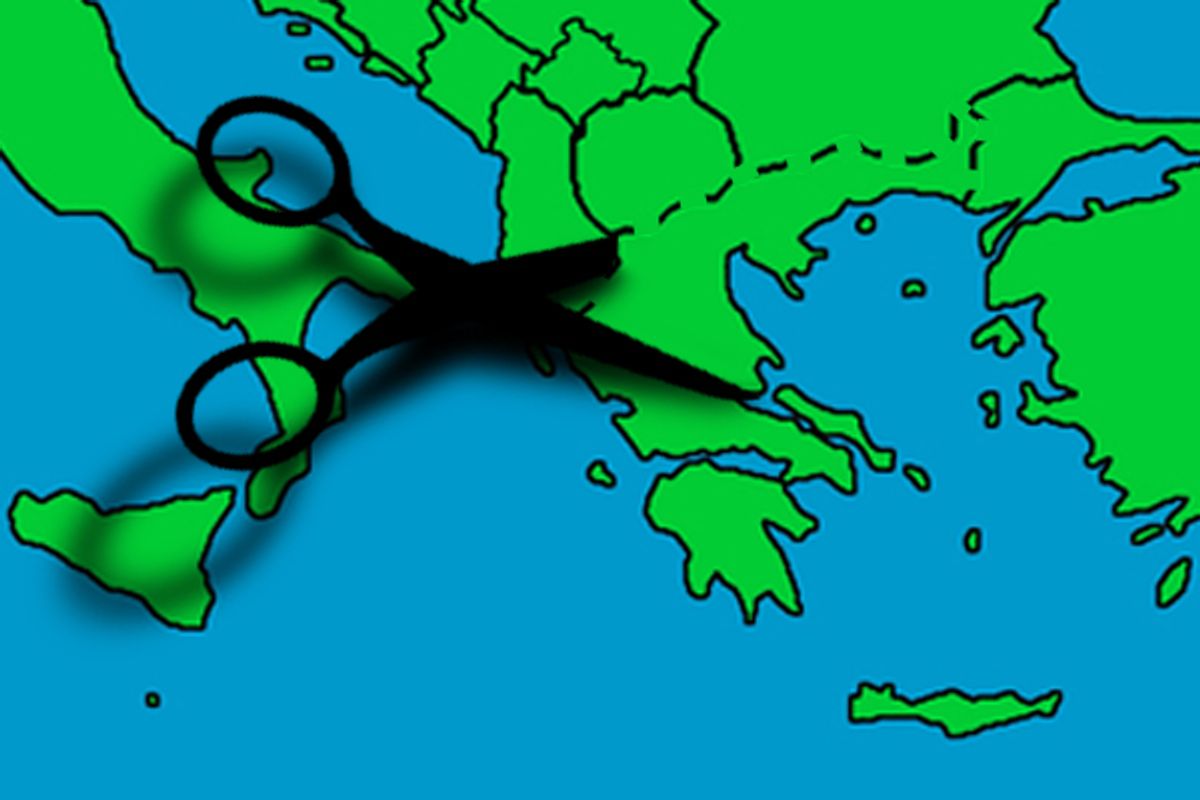Is Greece approaching the end of the line? Judging by a lengthy and detailed article in Spiegel, "Germany Plans for Possible Greece Default," getting passed around Monday by econobloggers like a eurozone-destroying hot potato, the answer is yes. Germany's patience -- never much to begin with -- has run out. There is no way that Greece will be able to keep to the terms of its ongoing bailout, and the support spigot appears finally about to run dry. So one way or another, the country will default. The only question is whether it does so as a member of the eurozone, or as a refugee.
Many observers have been predicting this end game since the beginning of Europe's sovereign debt crisis, if only because the austerity forced upon Greece by the terms of its bailout has so damaged the Greek economy as to make it impossible for the country to grow at all. But whatever might or might not happen to Greece has never been the primary cause for concern. European banks own lots and lots of Greek debt. What happens to those banks when Greece defaults?
Systemic crisis, anyone? As Spiegel observes, "As the financial crisis showed, banks are deeply interconnected across national borders. If one major bank fails, others can easily be dragged down with it."
And that of course, was the rationale for bailing out institutions like Bank of America and Citigroup, rather than forcing them into some kind of managed bankruptcy. Now it looks more and more like the world will get a chance to find out what happens when governments decide that they won't (or can't) bail out the bad apples.
The consensus view of Europe's policymakers, as summarized by Spiegel, seems to be that Greece is a basket case that can't be saved, but that the Greek contagion won't spread to other sickly eurozone countries. That sounds an awful lot to me like Hank Paulson or Ben Bernanke's assertions that the subprime mortgage housing woes were "contained." The big risk of course, is that Greece turns out to be like Lehman Brothers, and a default there leads to meltdown more broadly.
Felix Salmon captures the moment:
"We're at an inflection point, in Europe, and all the signs are pointing to more chaos and uncertainty. The last crisis brought Europe and the world together, at least briefly. This one is tearing Europe apart."

Shares